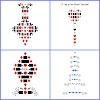OpenAI Unveils Voice Generation: A Breakthrough in Synthetic Voice Technology
In a groundbreaking leap forward, OpenAI, the leading
artificial intelligence research organization has announced the development of
Voice Generation is a cutting-edge tool capable of creating synthetic voices from
a mere 15 seconds of audio input. This latest innovation adds yet another
feather to OpenAI's cap, following the rapid advancements of its ChatGPT
generative AI chatbot and Sora AI video creator over the past year.
According to a recent blog post shared via The Verge, OpenAI
has been quietly refining Voice Generation since late 2022, conducting a
small-scale preview to demonstrate its capabilities. The technology, termed
Voice Engine, has already been integrated into the Read Aloud feature of the
ChatGPT app, where it narrates responses to users.
One of the most striking features of Voice Generation is its ability to imbue synthesized voices with emotion and realism, lending a human-like quality to the generated speech. Users can train the system with just a short snippet of audio, after which it can articulate any text provided to it in a manner that is both expressive and authentic.
OpenAI envisions a multitude of applications for Voice
Generation, ranging from educational endeavors to linguistic translation. By
leveraging this technology, podcasts could be translated into various
languages, facilitating broader accessibility and inclusivity. Moreover, Voice
Generation holds promise for bridging communication gaps in remote communities
and providing vital support for individuals who are non-verbal.
The unveiling of Voice Generation marks a significant
a milestone in the realm of synthetic voice technology, underscoring OpenAI's
commitment to pushing the boundaries of artificial intelligence for the
betterment of society. As this transformative tool continues to evolve, its
potential to revolutionize communication and accessibility across diverse
contexts are boundless.


.jpg)



0 Comments